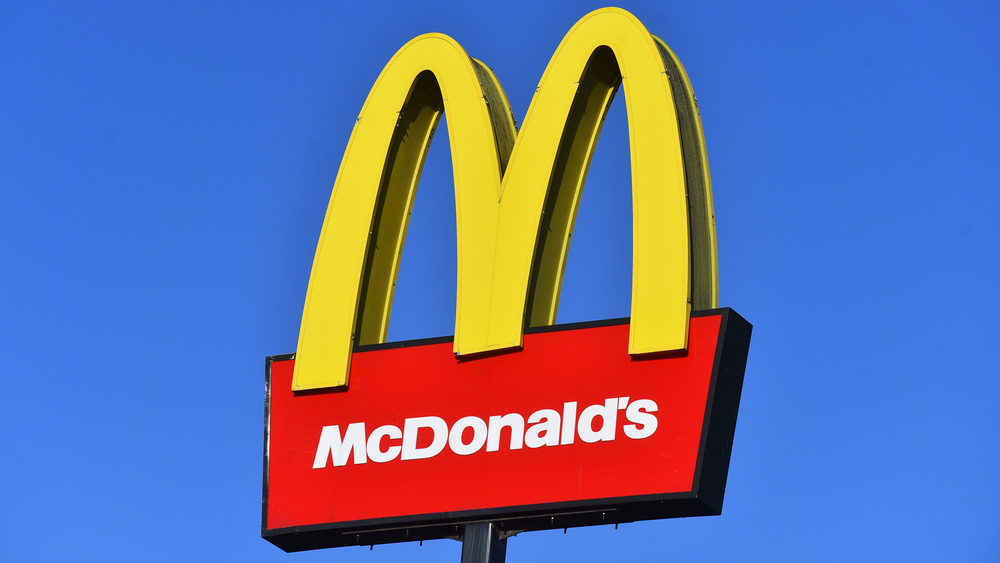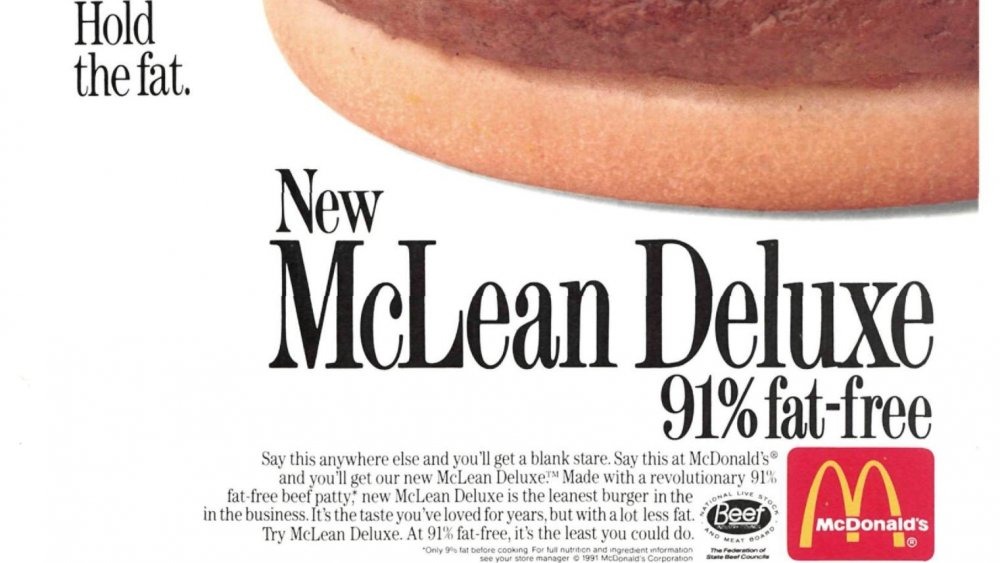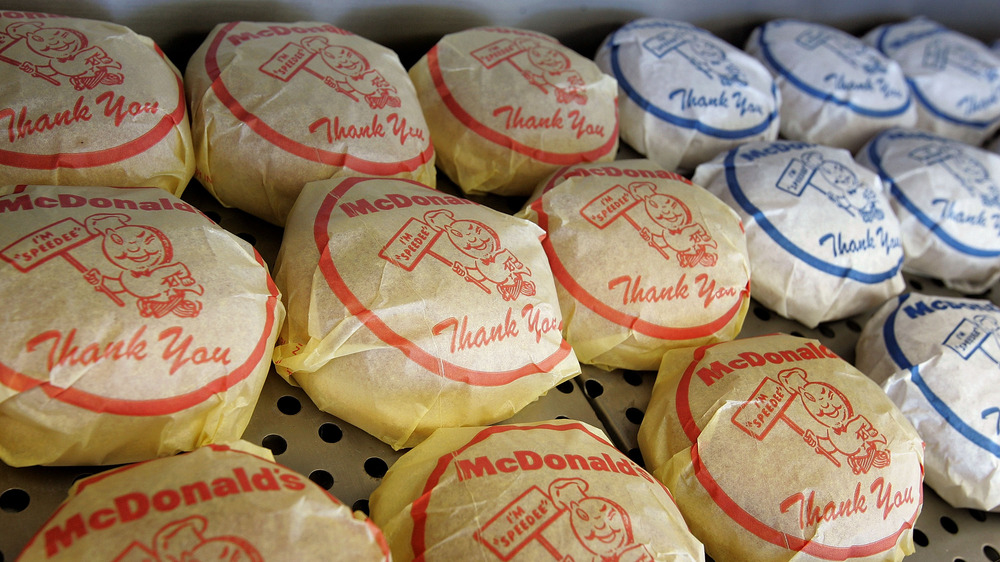The Real Reason People Stopped Buying The McDonald's McLean Deluxe
In the early '90s, McDonald's initiated a campaign to dispel its reputation for purveying fatty food to children. As a journalist notes in a piece for Atlas Obscura documenting his quest for the original taste of McDonald's fries, all fast food enterprises were attempting to cater to a more health conscious consumer base. To that end, McDonald's not only ditched the beef tallow for their fries, but also introduced the McLean Deluxe in 1991, the healthy option for their Deluxe line.
The McLean Deluxe, according to nutritional information provided by The Impulsive Buy, followed through with this vision with a 91 percent fat free beef patty. Each patty had 310 calories, 10 grams of fat, 60 milligrams of cholesterol, and 670 milligrams of sodium. While the sodium levels were still too high to be a truly healthy option, the burger managed to be less fatty than the average patty.
Though a purposefully low fat burger arguably contradicts the point of burgers, some believed that the McLean Deluxe could represent the future of fast food. "I think a great many chains, large and small, are going to be watching this because everything that McDonald's does is news and they have a very successful track record," Thomas A. Strenk, managing editor of Restaurant Business magazine, told The Baltimore Sun. However, he also had his doubts due to the short test-marketing the McLean Deluxe endured.
These concerns proved well-founded, for as Business Insider writes, McDonald's discontinued the McLean Deluxe in 1996.
The key ingredient proved unpopular
The way McDonald's managed to reduce the amount of fat in their beef patty was by replacing fat with carrageenan, an additive extracted from red seaweed, to bind the water and enhance the patty's flavor.
However, it's the fat of the meat that drives the burger's flavor. So, only two years into the McLean Deluxe's tenure, a column already consigning the burger to the bin of fast food oddities appeared in The Wall Street Journal (via The Seattle Times). In it, critic Richard Gibson praises the Mega Mac, a half pound Big Mac that McDonald's had recently introduced. Gibson builds on this, pointing out the rumors that the McLean Deluxe only contributed to less than 2 percent of sales. "As those who tried the low-fat McLean Deluxe soon learned, less grease may be good for the arteries, but not for flavor," he explained. Furthermore, if you added cheese to a McLean Deluxe, the result was a sandwich with a higher than recommended fat content anyway. So, really, the healthy option would be to not go to McDonald's.
The fact that a small percentage of the burger contained seaweed extract didn't help the McLean Deluxe, either. "Now they're putting seaweed in hamburgers," Johnny Carson, the late night talk show host, joked, according to The Orlando Sentinel. If such a joke seems less funny today, it's because the palate of American society has developed. Then, apparently, the idea of seaweed in burgers was too novel.
The McLean Deluxe was part of failing line
To focus only on McDonald's McLean Deluxe is to miss the fact that the McDonald's Deluxe line as a whole failed. In an examination of brand failure on Marketing91, writer Hitesh Bhasin looked at the more embarrassing crash and burn of the McDonald's Arch Deluxe. The Arch Deluxe, like the rest of the Deluxe line, was an attempt by McDonald's to appeal to an adult audience; it was branded as the "Burger with the Grown Up Taste."
However, as Bhasin points out, no one goes to McDonald's for sophistication — people go there for the convenience. Contrariwise, their intended audience wouldn't go to McDonald's even for a revamped burger. As food critic Avery Ao wrote on Medium, "In any case, people who want to eat refined food and don't care about the price, would rather go to a formal dining restaurant instead of a fast food place." As in the McLean Deluxe's case, McDonald's attempted to cater to a market that would consider going to McDonald's as completely against their dietary ethics. The reason people stopped buying it was because they didn't buy it in the first place.
Since then, McDonald's hasn't jumped headfirst into a healthy burger, but, as Elite Daily reports, they have instituted ingredient changes. For example, they swapped butter for margarine, and made other marginal improvements. McDonald's will never be healthy, but occasionally aims to be better.


